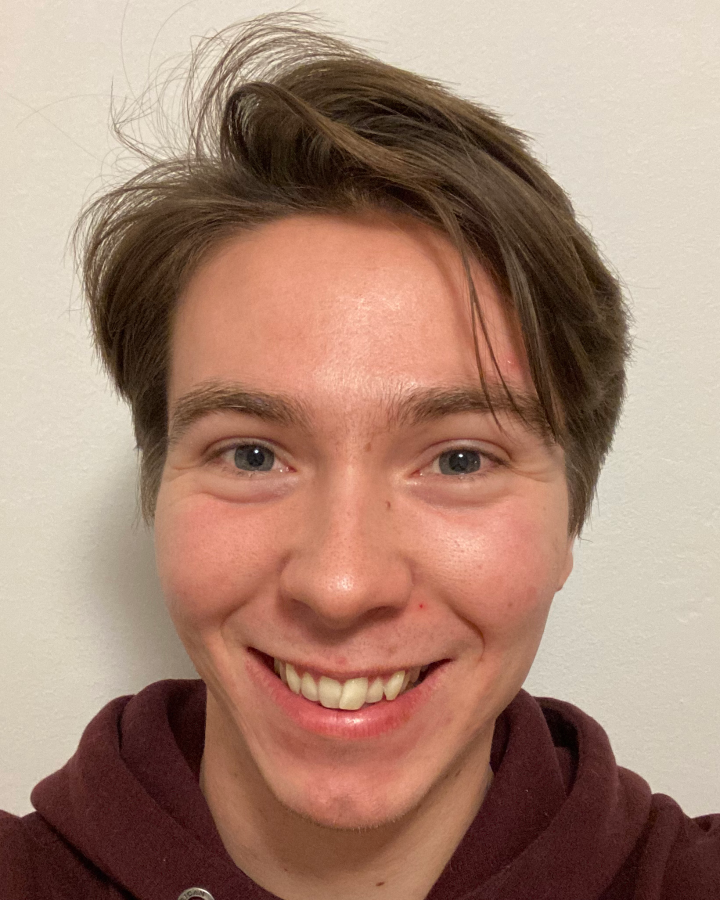Gerti Kappel
O.Univ.Prof.in Dipl.-Ing.in
Mag.a Dr.in techn.
Gerti Kappel
- Email: gertrude.kappel@tuwien.ac.at
- Phone: +43-1-58801-18870
- Office: HC0215 (1040 Wien, Favoritenstrasse 9)
- About:
Gerti Kappel is full professor at the Institute of Information Systems Engineering at TU Wien, chairing the Business Informatics Group. Prior to that, from 1993 to 2001, she was a full professor of computer science (database systems) and head of the Department of Information Systems at the Johannes Kepler University Linz.
From 2016 to 2019, she was a member of the dean’s team of the Faculty of Informatics responsible for research, diversity, and financial affairs. Since the beginning of 2020 she acts as the dean of the Faculty of Informatics at TU Wien.
Her current research interests include Model Engineering, Web Engineering, and Process Engineering, with a special emphasis on cyber-physical production systems. Striving for the unity of research and teaching, she co-authored and co-edited among others „UML@Work“ (dpunkt.verlag, 3rd ed, 2005), „UML@Classroom“ (Springer, 2015), and „Web Engineering“ (Wiley, 2006).
- Orcid: 0000-0002-4758-9436
- Keywords: Process Engineering, Data Engineering, Services Engineering, UML and XML, Business Process Management (BPM), Model Engineering, Workflow Management Systems (WFMS), Web Engineering, Object Orientation, Software Engineering
- Roles: Head of Services, Full Professor
Publications
Turning Conflicts into Collaboration
 Konrad Wieland
Konrad Wieland Philip Langer
Philip Langer Martina Seidl
Martina Seidl Manuel Wimmer
Manuel WimmerKeywords:
Astract: In model-driven software development, software models are the main artifacts used not only for supporting brainstorming, analysis, and design purposes, but also for generating executable code. Such software models are usually not created by one single developer, but within a team. To coordinate team work, versioning systems have proven to be indispensable for managing modifications performed by different modelers at the same time. When concurrently performed modifications are contradicting each other, the standard versioning paradigm requires the person who detected the conflict to resolve it immediately in order to keep the evolved artifacts in a consistent state. Whereas this approach works well in later phases of the software development process, in early phases, when the development team had not established a consolidated view on the system under development yet, the conflicts might provide valuable information on the various intentions of the modelers. This information might be lost if removed in an undocumented manner by a single modeler. We propose an alternative versioning paradigm for models, where conflicts are temporarily tolerated and discuss its technical realization for current modeling languages such as the UML. The resolution of conflicts is then not performed by one single modeler but within a team so that a consolidated version of the model is obtained.
Wieland, K., Langer, P., Seidl, M., Wimmer, M., & Kappel, G. (2013). Turning Conflicts into Collaboration. Computer Supported Cooperative Work, 22(2–3), 181–240. https://doi.org/10.1007/s10606-012-9172-4
A posteriori operation detection in evolving software models
 Philip Langer
Philip Langer Manuel Wimmer
Manuel Wimmer Petra Brosch
Petra Brosch Markus Herrmannsdörfer
Markus Herrmannsdörfer Martina Seidl
Martina Seidl Konrad Wieland
Konrad WielandKeywords:
Astract: As every software artifact, also software models are subject to continuous evolution. The operations applied between two successive versions of a model are crucial for understanding its evolution. Generic approaches for detecting operations a posteriori identify atomic operations, but neglect composite operations, such as refactorings, which leads to cluttered difference reports.
To tackle this limitation, we present an orthogonal extension of existing atomic operation detection approaches for detecting also composite operations. Our approach searches for occurrences of composite operations within a set of detected atomic operations in a post-processing manner. One major benefit is the reuse of specifications available for executing composite operations also for detecting applications of them. We evaluate the accuracy of the approach in a real-world case study and investigate the scalability of our implementation in an experiment.
Langer, P., Wimmer, M., Brosch, P., Herrmannsdörfer, M., Seidl, M., Wieland, K., & Kappel, G. (2013). A posteriori operation detection in evolving software models. Journal of Systems and Software, 86(2), 551–566. https://doi.org/10.1016/j.jss.2012.09.037
Reuse in Model-to-Model Transformation Languages: Are we there yet?
 A. Kusel
A. Kusel J. Schönböck
J. Schönböck Manuel Wimmer
Manuel Wimmer W. Retschitzegger
W. Retschitzegger W. Schwinger
W. Schwinger
Kusel, A., Schönböck, J., Wimmer, M., Kappel, G., Retschitzegger, W., & Schwinger, W. (2013). Reuse in Model-to-Model Transformation Languages: Are we there yet? Software and Systems Modeling, 14(2), 537–572. https://doi.org/10.1007/s10270-013-0343-7
Keywords:
Astract: UML is a standardized modeling language that is used in many application domains. Many companies use UML within their processes, and many UML models exist in different domains. With UML, a variety of systems can be modeled, for example software systems, business processes, and production processes. Since UML is a language that is used for many application domains, the question arises how UML is used in practice. Currently, there are only a few empirical studies about the practical use of UML. None of these studies has analyzed real world models. In most cases the usage of UML has been analyzed by surveys or investigating current UML literature and UML modeling tools. Therefore, this work is devoted to the research question of how UML is used in practice and tries to answer this question by analyzing real world models. In particular, the following questions are answered: Which UML language units are used? Which UML language concepts are used? Which UML diagrams are used? Which relationships are used between UML concepts of different UML language units? Which UML profiles are used to provide additional information in UML models? To answer these questions, 92 UML models, which are publicly accessible on the Web and created with the Enterprise Architect (EA) modeling tool, were quantitatively analyzed. EA was chosen as modeling tool because it provides its own API which enables to access the content of a model with script languages such as JavaScript or Visual Basic. The results gave an insight into the usage of UML. Particularly, it could be determined which of the considered UML concepts and UML diagrams were often used and which were rarely used. Furthermore, the results showed between which UML language units more or less relationships were modeled. UML profiles were used quite commonly, but only a few different UML profileshave been used. Finally, the master thesis revealed that further evaluations concerning the usage of UML are needed to obtain more reliable data about how UML is used in practice.
Bohn, A. (2013). Towards an understanding of the practical use of UML [Diploma Thesis, Technische Universität Wien]. reposiTUm. https://doi.org/10.34726/hss.2013.21928
Keywords:
Astract: This book constitutes the refereed proceedings of the 6th International Conference on Theory and Practice of Model Transformations, ICMT 2013, held in Budapest, Hungary, in June 2013. The 13 full papers and 5 tool and application demonstrations were carefully selected from 58 submissions. The papers are grouped in topical sections which focus on new programming models, tools and applications, evolution and synchronization, transformation engineering, and testing.
Duddy, K., & Kappel, G. (Eds.). (2013). Theory and Practice of Model Transformations. Springer LNCS. https://doi.org/10.1007/978-3-642-38883-5
Teaching
Project in Computer Science 1
Semester: 2025S; Nr: 194.145; Type: PR; Hours: 4.0; Language: if required in English; View on TISSSeminar for Master Students in Business Informatics
Semester: 2024W; Nr: 180.779; Type: SE; Hours: 1.0; Language: English; View on TISSResearch Seminar
Semester: 2024W; Nr: 188.446; Type: SE; Hours: 2.0; Language: if required in English; View on TISSLiterature Seminar for PhD Students
Semester: 2024W; Nr: 188.512; Type: SE; Hours: 2.0; Language: German; View on TISSModel Engineering
Semester: 2024W; Nr: 188.923; Type: VU; Hours: 4.0; Language: English; View on TISSBachelor Thesis for Informatics and Business Informatics
Semester: 2024W; Nr: 188.926; Type: PR; Hours: 5.0; Language: if required in English; View on TISSScientific Research and Writing
Semester: 2024W; Nr: 193.052; Type: SE; Hours: 2.0; Language: German; View on TISSProject in Computer Science 1
Semester: 2024W; Nr: 194.145; Type: PR; Hours: 4.0; Language: if required in English; View on TISSSustainability in Computer Science
Semester: 2024W; Nr: 194.155; Type: VU; Hours: 2.0; Language: English; View on TISSProjects
Digitale Kompetenzen @ Parlament
Name: DKP; Title: Digitale Kompetenzen @ Parlament; Begins On: 2021-04-01; Ends On: 2021-09-30; Context: Parlamentsdirektion; View Project WebsiteIFC-Roundtrip und Plangrafiken
Name: IFC-Roundtrip und Plangrafiken; Title: IFC-Roundtrip und Plangrafiken; Begins On: 2019-01-01; Ends On: 2020-06-30; Context: tbw solutions ZT GesmbH; View Project WebsiteVienna Informatics Living Lab
Name: Vienna Informatics Living Lab; Title: Vienna Informatics Living Lab; Begins On: 2018-08-01; Ends On: 2019-07-31; Context: Vienna Business Agency (WAW); View Project WebsiteMulti-Paradigm Modelling for Cyber-Physical Systems (MPM4CPS)
Name: MPM4CPS; Title: Multi-Paradigm Modelling for Cyber-Physical Systems (MPM4CPS); Begins On: 2014-10-01; Ends On: 2019-05-31; Context: European Cooperation in Science and Technology (COST); View Project WebsiteCOSIMO: Collaborative Configuration Systems Integration and Modeling
Name: COSIMO; Title: COSIMO: Collaborative Configuration Systems Integration and Modeling; Begins On: 2014-01-01; Ends On: 2017-05-30; Context: Vienna Business Agency (WAW); View Project WebsiteARTIST: Advanced software-based seRvice provisioning and migraTIon of legacy Software
Name: ARTIST; Title: ARTIST: Advanced software-based seRvice provisioning and migraTIon of legacy Software; Begins On: 2012-10-01; Ends On: 2015-09-30; Context: European Commission; View Project WebsiteDARWIN - Model-driven Development and Evolution of Semantic Infrastructures
Name: DARWIN; Title: DARWIN - Model-driven Development and Evolution of Semantic Infrastructures; Begins On: 2012-03-01; Ends On: 2015-02-28; Context: Austrian Research Promotion Agency (FFG); View Project WebsiteTROPIC: A Framework for Model Transformations on Petri Nets in Color
Name: TROPIC; Title: TROPIC: A Framework for Model Transformations on Petri Nets in Color; Begins On: 2009-03-01; Ends On: 2012-08-31; Context: Austrian Science Fund (FWF); View Project WebsiteAMOR: Adaptable Model Versioning
Name: AMOR; Title: AMOR: Adaptable Model Versioning; Begins On: 2009-02-01; Ends On: 2011-09-30; Context: SparxSystems Software GmbH; View Project WebsiteDevelopment of a WEB-based database for the global administration of CAN-Data
Name: Rosenbauer-DB; Title: Development of a WEB-based database for the global administration of CAN-Data; Begins On: 2008-09-01; Ends On: 2009-04-30; Context: Rosenbauer; View Project WebsiteModel-Driven Web Engineering net
Name: MDWEnet; Title: Model-Driven Web Engineering net; Begins On: 2006-12-01; Ends On: 2010-12-31; Context: Johannes Kepler Universität Linz; View Project WebsiteTRACK and TRADE: Creating a Data Mart for Floating Car Data
Name: TRACK™ Title: TRACK and TRADE: Creating a Data Mart for Floating Car Data; Begins On: 2006-10-01; Ends On: 2008-09-30; Context: European Commission; View Project WebsiteModelCVS: A Semantic Infrastructure for Model-based Tool Integration
Name: ModelCVS; Title: ModelCVS: A Semantic Infrastructure for Model-based Tool Integration; Begins On: 2006-01-01; Ends On: 2007-12-31; Context: ARIKAN Productivity Group GesmbH; View Project WebsiteZELESSA: An Enabler for Real-time Business Intelligence
Name: ZELESSA; Title: ZELESSA: An Enabler for Real-time Business Intelligence; Begins On: 2006-01-01; Ends On: 2007-06-30; Context: Österr. Nationalbibliothek; View Project WebsiteAdmina.at goes Austria
Name: Admina.at; Title: Admina.at goes Austria; Begins On: 2005-12-01; Ends On: 2007-09-30; Context: Federal Ministry of Science and Research (bm:wf); View Project WebsiteWomen's Postgraduate College for Internet Technologies
Name: WIT; Title: Women's Postgraduate College for Internet Technologies; Begins On: 2003-01-01; Ends On: 2007-12-31; Context: European Commission; View Project WebsiteTeam
Business Informatics Group, TU Wien
Professors
Christian Huemer
Ao.Univ.Prof. Mag.rer.soc.oec.Dr.rer.soc.oec.
Dominik Bork
Associate Prof. Dipl.-Wirtsch.Inf.Univ.Dr.rer.pol.
Gerti Kappel
O.Univ.Prof.in Dipl.-Ing.inMag.a Dr.in techn.
Henderik Proper
Univ.Prof. PhDResearchers
Aleksandar Gavric
Univ.Ass. MEng. B.Eng.
Galina Paskaleva
Projektass.in Dipl.-Ing.inDipl.-Ing.in BSc

Marianne Schnellmann
Univ.Ass.in BSc MScMarion Murzek
Senior Lecturer Mag.a rer.soc.oec.Dr.in rer.soc.oec.
Marion Scholz
Senior Lecturer Dipl.-Ing.inMag.a rer.soc.oec.
Miki Zehetner
Univ.Ass. DI Bakk.rer.soc.oec. MScSyed Juned Ali
Univ.Ass. BSc MScStudent-Staff

Florian Fankhauser
Projektass. Dipl.-Ing.Julia Smejkal
BSc






